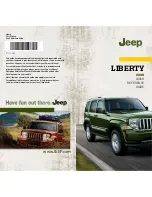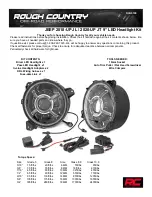
Make certain that all wheel nuts are properly
tightened. See “Wheel Nut Torque” under
Capacities and Specifications on page 5-116.
{
CAUTION:
Rust or dirt on a wheel, or on the parts to
which it is fastened, can make wheel nuts
become loose after time. The wheel could
come off and cause an accident. When you
change a wheel, remove any rust or dirt from
places where the wheel attaches to the
vehicle. In an emergency, you can use a
cloth or a paper towel to do this; but be sure
to use a scraper or wire brush later, if
needed, to get all the rust or dirt off. See
Changing a Flat Tire on page 5-80.
Make sure the spare tire is stored securely. Push,
pull, and then try to rotate or turn the tire. If it
moves, tighten the cable. See Storing a Flat or
Spare Tire and Tools on page 5-95.
When It Is Time for New Tires
Various factors, such as maintenance, temperatures,
driving speeds, vehicle loading, and road conditions,
influence when you need new tires.
One way to tell when it is
time for new tires is to
check the treadwear
indicators, which appear
when your tires have
only 1/16 inch (1.6 mm) or
less of tread remaining.
Some commercial
truck tires may not have
treadwear indicators.
5-70
Summary of Contents for 2009 Avalanche
Page 6: ... NOTES vi ...
Page 23: ...Put someone on it Get it up to speed Then stop the vehicle The rider does not stop 1 17 ...
Page 86: ... NOTES 1 80 ...
Page 183: ... NOTES 3 3 ...
Page 184: ...Instrument Panel Overview 3 4 ...
Page 380: ... NOTES 4 68 ...
Page 498: ... NOTES 5 118 ...
Page 514: ...Engine Drive Belt Routing 6 16 ...
















































